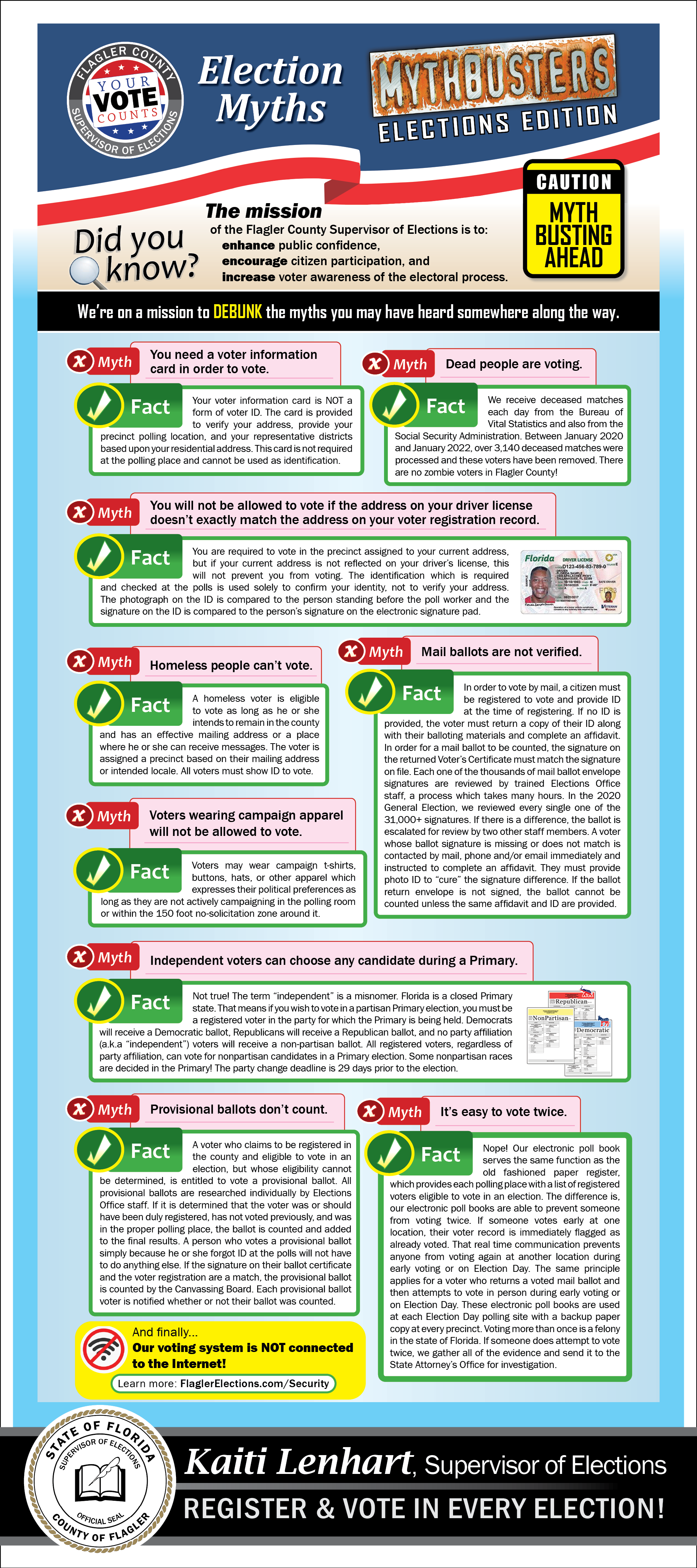Mythbusters - Election Edition
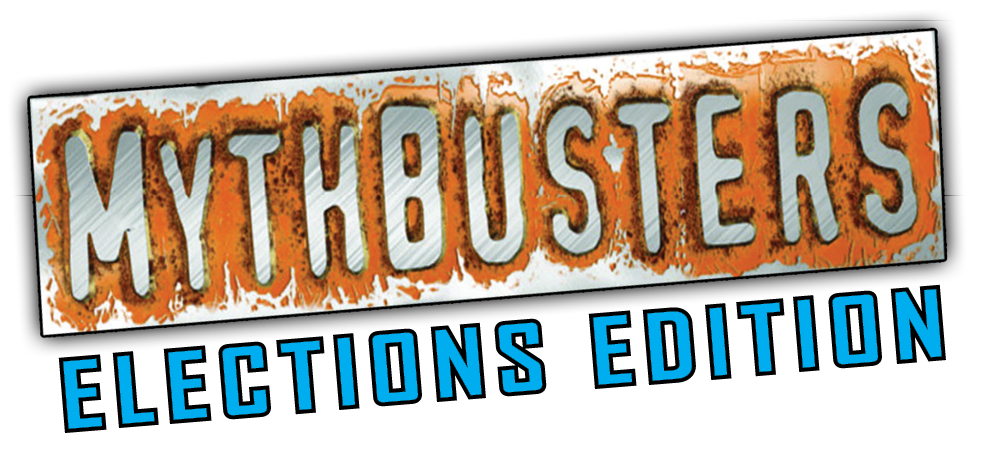
The mission of the Flagler County Supervisor of Elections is to:
- Enhance public confidence
- Encourage citizen participation
- Increase voter awareness of the electoral process
We're on a mission to debunk the myths you may have heard somewhere along the way.
 You need a voter information card in order to vote.
You need a voter information card in order to vote.
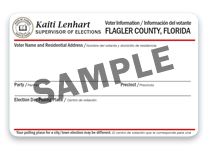
Your voter information card is NOT a form of voter ID. The card is provided to verify your address, provide your precinct polling location, and your representative districts based upon your residential address. This card is not required at the polling place and cannot be used as identification.
View the acceptable forms of voter identification here:
Voter ID
 Dead people are voting.
Dead people are voting.
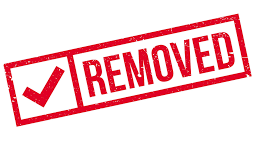
We receive deceased matches each day from the Bureau of Vital Statistics and also from the Social Security Administration. Between January 2020 and January 2022, over 3,140 deceased matches were processed and these voters have been removed. There are no zombie voters in Flagler County!
Learn more about voter list maintenance here:
Election Security
 You will not be allowed to vote if the address on your drivers license doesn’t exactly match the address on your voter registration record.
You will not be allowed to vote if the address on your drivers license doesn’t exactly match the address on your voter registration record.
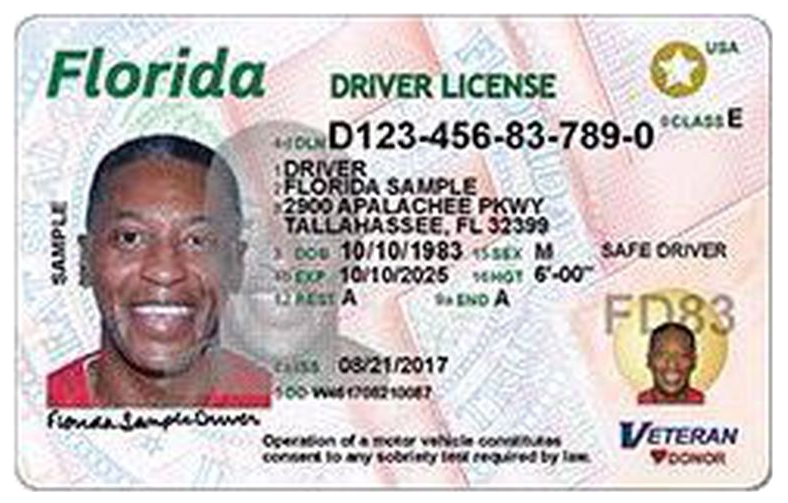
You are required to vote in the precinct assigned to your current address, but if your current address is not reflected on your driver’s license, this will not prevent you from voting. The identification which is required and checked at the polls is used solely to confirm your identity, not to verify your address. The photograph on the ID is compared to the person standing before the poll worker and the signature on the ID is compared to the person’s signature on the electronic signature pad.
Update your address here:
My Voter Information
 Homeless people can't vote.
Homeless people can't vote.

A homeless person is eligible to vote as long as he or she is a US Citizen, over 18 years old, and intends to remain in the county and has an effective mailing address or a place where he or she can receive messages. The voter is assigned a precinct based on their mailing address or intended locale. All voters must show ID to vote.
Learn more about voter registration here:
How And Where To Register
 Mail ballots are not verified.
Mail ballots are not verified.
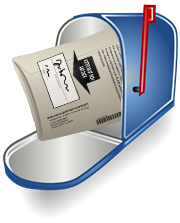
In order to vote by mail, a citizen must be registered to vote and provide ID at the time of registering. If no ID is provided, the voter must return a copy of their ID along with their balloting materials and complete an affidavit. In order for a mail ballot to be counted, the signature on the returned Voter’s Certificate must match the signature on file. Each one of the thousands of mail ballot envelope signatures are reviewed by trained Elections Office staff, a process which takes many hours. In the 2020 General Election, we reviewed every single one of the 31,000+ signatures. If there is a difference, the ballot is escalated for review by two other staff members. A voter whose ballot signature is missing or does not match is contacted by mail, phone and/or email immediately and instructed to complete an affidavit. They must provide photo ID to “cure” the signature difference. If the ballot return envelope is not signed, the ballot cannot be counted unless the same affidavit and ID are provided.
Read answers to frequently asked questions about voting by mail:
Mail Ballot FAQ
 Voters wearing campaign apparel will not be allowed to vote.
Voters wearing campaign apparel will not be allowed to vote.
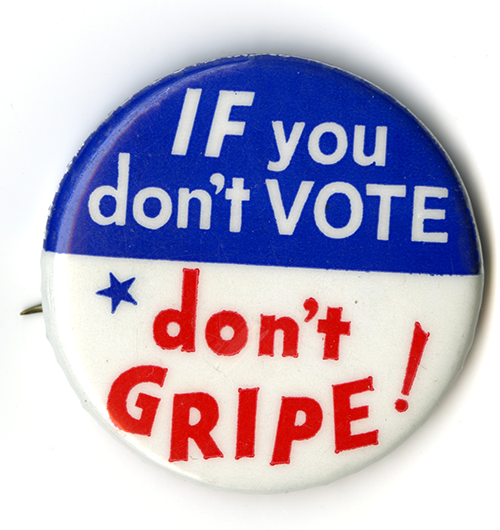
Voters may wear campaign t-shirts, buttons, hats, or other apparel which expresses their political preferences as long as they are not actively campaigning in the polling room or within the 150 foot no-solicitation zone around it.
Learn more about what to expect at the polling location:
Voting FAQ
 Independent voters can choose any candidate during a Primary.
Independent voters can choose any candidate during a Primary.
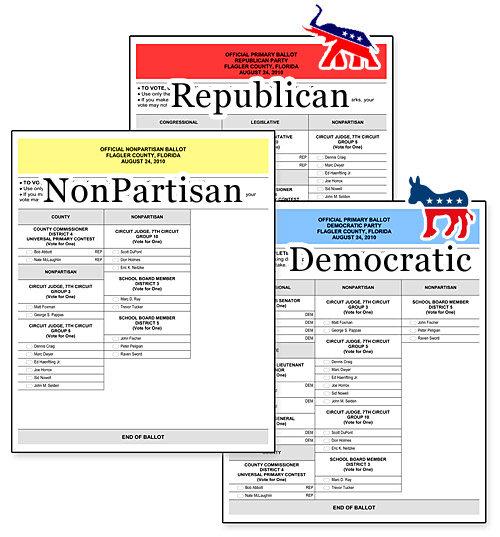
Not true! The term “independent” is a misnomer. Florida is a closed Primary state. That means if you wish to vote in a partisan Primary election, you must be a registered voter in the party for which the Primary is being held. Democrats will receive a Democratic ballot, Republicans will receive a Republican ballot, and no party affiliation (a.k.a “independent”) voters will receive a non-partisan ballot. All registered voters, regardless of party affiliation, can vote for nonpartisan candidates in a Primary election. Some nonpartisan races are decided in the Primary! The party change deadline is 29 days prior to the election.
Read more about closed Primary Elections in Florida:
What is a Closed Primary?
 Provisional ballots don't count.
Provisional ballots don't count.

A voter who claims to be registered in the county and eligible to vote in an election, but whose eligibility cannot be determined, is entitled to vote a provisional ballot. All provisional ballots are researched individually by Elections Office staff. If it is determined that the voter was or should have been duly registered, has not voted previously, and was in the proper polling place, the ballot is counted and added to the final results. A person who votes a provisional ballot simply because he or she forgot ID at the polls will not have to do anything else. If the signature on their ballot certificate and the voter registration are a match, the provisional ballot is counted by the Canvassing Board. Each provisional ballot voter is notified whether or not their ballot was counted.
If you vote a provisional ballot, you can check the status here:
Provisional Ballot Lookup
 It's easy to vote twice.
It's easy to vote twice.
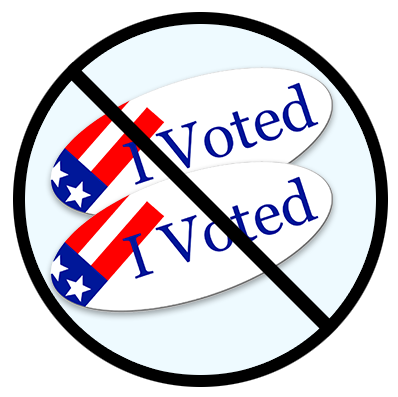
Nope! Our electronic poll book serves the same function as the old fashioned paper register, which provides each polling place with a list of registered voters eligible to vote in an election. The difference is, our electronic poll books are able to prevent someone from voting twice. If someone votes early at one location, their voter record is immediately flagged as already voted. That real time communication prevents anyone from voting again at another location during early voting or on Election Day. The same principle applies for a voter who returns a voted mail ballot and then attempts to vote in person during early voting or on Election Day. These electronic poll books are used at each Election Day polling site with a backup paper copy at every precinct. Voting more than once is a felony in the state of Florida. If someone does attempt to vote twice, we gather all of the evidence and send it to the State Attorney’s Office for investigation.
Learn more about electronic poll books here:
Election Security
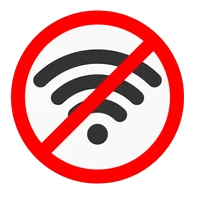 And finally... Our voting system is NOT connected to the Internet!
And finally... Our voting system is NOT connected to the Internet!
Want to know more? Our
Election Security page should answer your question. If not, please
contact the Elections Office and receive an answer!
Posters!
 Download PDF poster: Mythbusters - Elections Edition
Download PDF poster: Mythbusters - Elections Edition
